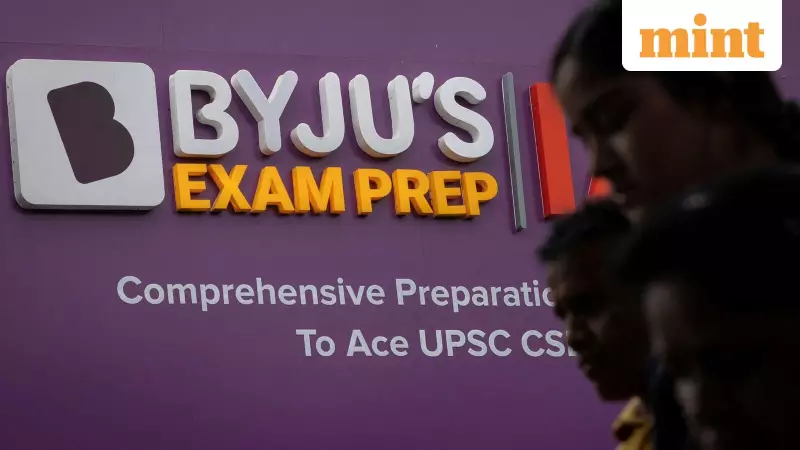
Two of India's education sector heavyweights are locked in a high-stakes battle for the remains of what was once the country's most valuable edtech startup. The Manipal Group, led by healthcare and education magnate Ranjan Pai, and Ronnie Screwvala's upGrad have formally expressed interest in acquiring assets of Think & Learn Pvt. Ltd (TLPL), the parent company of Byju's, which is now undergoing corporate insolvency proceedings.
The Rise and Fall of an Edtech Giant
Think & Learn Pvt. Ltd, which operated under the Byju's brand, reached an astonishing $22 billion valuation at its peak in 2022, making it one of India's most celebrated startup success stories. The company raised approximately $4 billion from global investment giants including Tiger Global, General Atlantic, Sequoia Capital India, Chan Zuckerberg Initiative, Silver Lake, and B Capital during its expansion phase.
The company embarked on an aggressive acquisition spree, purchasing more than 20 companies across K-12 education, test preparation, and upskilling segments. Its most notable acquisitions included Aakash Educational Services, WhiteHat Jr, Epic, and Great Learning, as it sought to dominate multiple segments of India's education market simultaneously.
Governance Lapses and Financial Troubles
The rapid expansion was followed by serious governance issues and financial mismanagement. The company faced repeated delays in filing audited financial statements, leading to the resignation of Deloitte as its statutory auditor. Questions emerged about revenue recognition practices, while numerous parents complained about aggressive sales tactics and mis-selling of long-term courses.
The situation deteriorated further when Byju's defaulted on its $1.2 billion term loan B, triggering a bitter confrontation with lenders led by GLAS Trust Company. This default marked the beginning of the end for the edtech unicorn, eventually leading to the current insolvency process at the National Company Law Tribunal (NCLT).
The Insolvency Battle and Creditor Dynamics
The Corporate Insolvency Resolution Process (CIRP) for TLPL involves approximately 1,780 creditors with claims running into thousands of crores. According to filings reviewed by Mint, GLAS Trust Company has filed the largest claim at approximately ₹11,432 crore related to the $1.2 billion offshore loan.
Other significant creditors include Aakash Educational Services Ltd with claims around ₹1,404 crore and Anglo Asia Ltd seeking approximately ₹810 crore. InCred Financial Services has an admitted unsecured financial claim of about ₹20.3 crore, while ICICI Bank also appears in the creditor list.
The power dynamics within the Committee of Creditors (CoC) are heavily skewed toward US lenders. GLAS and fellow US lenders control 99.41% of the voting share in the CoC, giving them effective veto power over any resolution plan or settlement.
How the Bidding Process Will Unfold
Rohit Jain, managing partner at Singhania & Co., explained the intricate process that Manipal and upGrad must navigate. "Prospective resolution applicants who clear the eligibility criteria set by the committee of creditors are first given access to an information memorandum and virtual data room," Jain stated.
This allows bidders to conduct detailed financial and legal due diligence on TLPL before submitting binding, confidential resolution plans. These plans must comply with the Insolvency and Bankruptcy Code, including provisions for covering CIRP costs and paying operational creditors at least their liquidation value.
The CoC will evaluate competing plans based on multiple factors including upfront cash offers, feasibility, bidder track records, and treatment of all stakeholders. The winning plan requires approval from lenders holding at least 66% of the voting share before being sent to NCLT for final approval.
Beyond the financial creditors, the resolution process must address claims from approximately 1,700 employees seeking unpaid dues estimated in the low hundreds of crore, plus nearly 100 vendors including Aditya Birla Finance and various service providers.
As Jain emphasized, "The 'best' bid is whatever the CoC, in its commercial wisdom, decides is best—it often balances maximizing immediate cash recovery for creditors with ensuring the long-term survival of the business." The outcome will determine not just the future of Byju's assets but could reshape India's entire edtech landscape.





